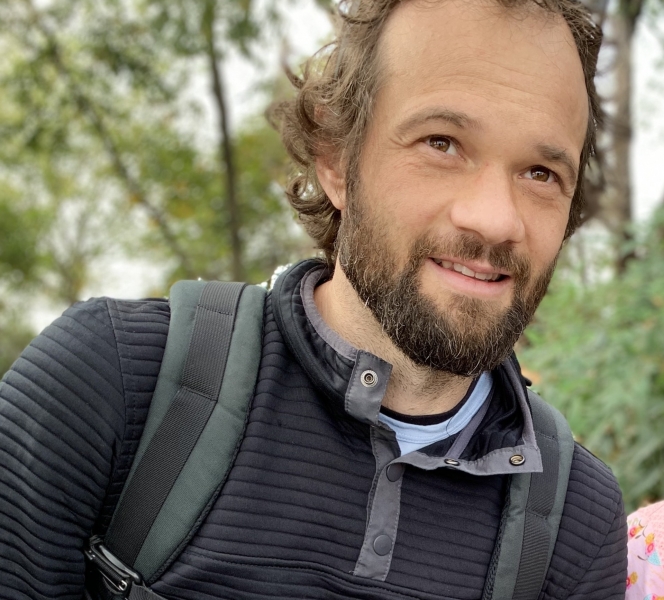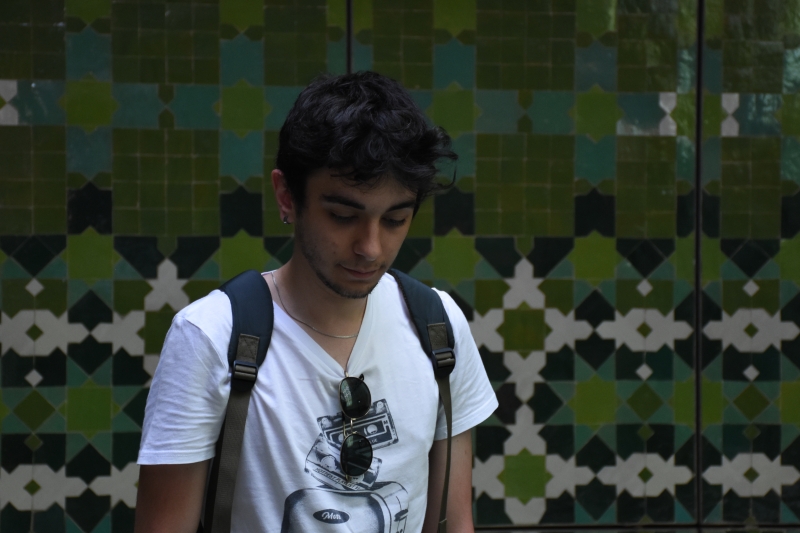
Professor Kyle Fruh hopes the research will continue discussion on kidney transplants
By John Butcher
A DKU professor and student team has advanced debate about ways to address shortages in kidney donorship with a paper published in the journal Medicine, Health, Care and Philosophy.
In “Offering more without offering compensation: non-compensating benefits for living kidney donors,” Kyle Fruh, assistant professor of philosophy, and undergraduate student Ege Duman explore the concept of non-compensating benefits as a means to encourage donorship without crossing the moral line into paying for kidneys.
“The paper is meant to continue a discussion, one that’s closely connected to policy talks,” said Fruh.
The pair teamed up to write the paper at the beginning of 2020, and soon after were separated as the Covid-19 pandemic took hold. With Duman in his native Turkey and Fruh first in China and then the United States, they read and researched at home, while exchanging frequent emails and talking for hours online via video chat.
Despite the distance, the “process was great,” said Fruh, and exactly what liberal arts should be, an ongoing conversation with each continuously challenging the other’s assertions.
Globally, the vast majority of living kidney donations made to a stranger are either completely unpaid or rewarded with modest compensation, known as defrayment, to cover costs such as time off work and for medical treatment. With this system failing to deliver enough kidneys and waiting lists lengthening there is a growing conversation within the medical community about how to address the problem.
Some argue for marketization, which would allow people to sell their kidneys. In the U.S. a figure of US$100,000 has been suggested as a reasonable market price. So far, this has been rejected on moral grounds, with fears that it could lead to exploitation of the poor and a general dehumanization of people.

Research collaborator Ege Duman
Calls for greater levels of defrayment have made some headway, according to Fruh, but experience suggests this will not be enough to address the shortage in donations.
Fruh and Duman argue that a middle path of non-compensating benefits that expand on defrayment but do not provoke the same moral concerns as cash payments could encourage more donors to come forward.
Many donors are left with a deep sense of satisfaction from giving away a kidney, said Fruh. Donors have described their lives as being “immeasurably improved” despite the risks involved and arduousness of the process.
This form of non-compensating benefit could be enhanced by greater recognition of the act of giving, such as through award ceremonies or medals, said Fruh, and this is just the tip of an iceberg of non-compensating benefits that might be considered.
“There is maybe a broader category here of things that we can offer to donors that don’t compensate them and don’t have the big headline worries associated with cash payments such as exploitation and commodification,” he said.
One such incentive, which has been tried in parts of the U.S., would be to offer donors a kidney voucher that would allow them to jump the transplant line in the event they ever needed to. This voucher could also be made transferrable to a limited number of people.
The catalyst to this system being tried was the case of a grandfather who wanted to donate a kidney to his grandson but was not a match, and so offered to donate to a stranger if his relative could jump the line for a transplant.
“He didn’t want to just put an organ into the system. He wanted to find a way to make it come back to his grandson,” said Fruh.
“This impulse is: I want to do this, I want to give this organ, I want to help someone, but I want to get something in return. And in this case, I want something very specific,” he added.
Another potential avenue for non-compensating benefits could be to allow the kidney donor to direct a sum of money to a charity of their choice rather than receive that same sum as payment, said Fruh, thus capitalizing on altruistic intent mixed with a desire to get something in return.
The kidney donorship situation is a “slow motion car crash of a moral disaster,” he said.
“There are all these people who need help and we just can’t get them the help that they need. How do we address that?” he added.
The professor-student research team has brought attention to that question. An early draft of the paper was presented at a medical ethics conference and sparked conversation about the issue of non-compensating benefits. Fruh hopes the published paper will continue that debate, which, while theoretical, has real practical implications for the medical profession.
“We are pushing non-compensating benefits and saying it is bigger than just medals,” said Fruh. “It’s not so problematic as markets but could have an effect on donations.”

